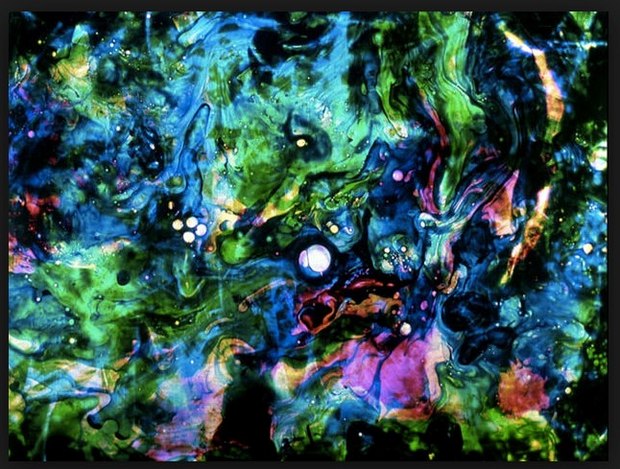What’s joy got to do with it? Is joy just a second-hand emotion?
Steven Woloshen, the acclaimed animator, writer, and teacher, and I were sitting and talking in the cafeteria at the National Film Board of Canada. He was surrounded by his colleagues, but I was surrounded by luminaries of animation. My attention drifted from talking to him as a person, to talking to him as an award-winning animator.
We were talking about the aesthetics of joy. So, I asked him what films made him feel joyful. He categorically denied feeling joy when looking at films. “I’m too engrossed in looking at what I could use in my own films,” he quipped only half in gest. But Steven was much more convinced of the joy he feels when making his animations and writing his books.
Steven described his motivation in writing, for example, “Scratch, Crackle, & Pop! A Whole Grains Approach to Making Films Without A Camera,” as just wanting to share his love of experimental animation with readers. “I can’t see their reactions, they can’t ask questions to the book. I don’t think of my book as the final word, it’s just a way to get the ball rolling, of motivating them.”
In describing his work as being born from sheer love, of his being intrinsically motivated, Steven cited Stan Brakhage, “In Defense of Amateur.” https://hambrecine.files.wordpress.com/2014/05/in-defense-of-amateur-bra...
The famed experimental filmmaker wrote that the artist is fundamentally an “amateur,” a lover of the craft of sheer doing, even with all the mistakes, even without finding all the answers.
Especially today with social media and the pressure that indie artists (as well as studio filmmakers) have to get the “hits” and “likes,” it is very easy for artists to get distracted by rejection. Steven suggested that while experimental animators are taught the technique of animation, they’re not given the psychological or emotional armor needed to ignore rejection. For Steven, he is very aware that it is love of the process that sees him though. “You have to do it [animate] even if there is no audience or you get no feedback.”
I asked Steven again about if he remembered seeing a film that gave him joy. This time, Steven admitted being struck by Oskar Fischinger’s 1927 experimental film Wachsexperimente. “I remember seeing it and going, ‘Oh, wow,’ as it hit me that experimental animation was something I had to do.
We agreed that “Oh, wow” is a very particular kind of joy, a “glee” as Steven put it, when all of the different themes and ways in which the film is constructed and presented just seem right on.
Steven added another film that made him feel this way was Christian Marclay’s 2010 film montage, The Clock. “It’s a functional art work. I mean you could tell time with the film, you could get you through the entire day. Who can ever come up with anything like that again?”
We spoke a bit of a pivotal films in my life, films that touch on mathematical or scientific visualization, about the Eames’ Powers of Ten and the NFB’s own Cosmic Zoom as films that make you go “Oh, wow.” He said, “I remember being taught to think of the Mandelbrot zoom, the fractal progression as not zooming into something smaller, but the picture screen itself getting larger with each iteration. When you get to the smallest fractal, you’d have to be in the Cygnus constellation [about 3200 light years away from Earth]…. Now, that’s really cool!”
These random moments of “wow” are gifts that creators of all stripes – animators, mathematicians, scientists, artists – give to us. It’s a confluence of all the elements that go into a film hitting a sweet spot in your brain. Steven is convinced that they can’t be given with any expectation of payback, or “likes,” but are given out of the joy of feeling and sharing moments of awe.
We finished our coffee and Steven told me he is working on a new animation. He described the central image, and then, almost as an aside, mentioned the key question he wanted the image to pose. My mind’s eye saw the image and its theme, something so ordinary yet so uniquely different. “Oh, wow,” I said, and thanked him for the gift.









